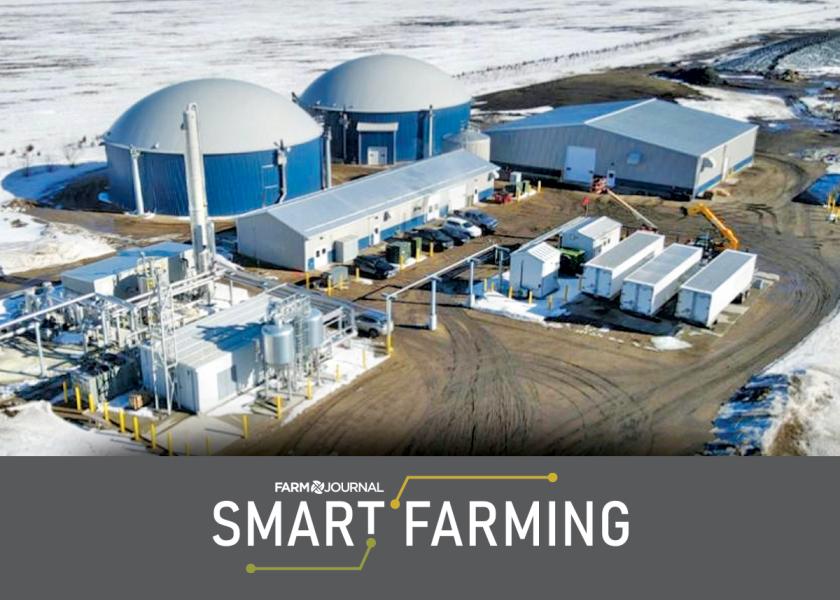New Methane Digester Complete at Tri-Cross Dairy, Begins Supplying RNG

Renewable natural gas (RNG) is certainly making a big appearance in 2024. Tri-Cross Dairy, a 5,000-cow operation located in Viborg, S.D., is the second dairy in the state within the last two months to begin supplying RNG to the natural gas pipeline via a methane digester.
According to Clean Energy, Tri-Cross Dairy’s partner for the project, the new facility is forecasted to produce 1 million gallons annually of negative carbon-intensity RNG.
The construction costs of the RNG production facility, which includes the build of digesters and processing plant, totaled $34 million and was completed in December 2023. The injecting of pipeline-quality RNG began shortly after completion. Clean Energy is in the process of filing the necessary applications to generate federal and state environmental credits. The facility is one in a series of projects in the Midwest for which the companies have partnered together.
“We anticipate 2024 to be a pivotal year in the demand for RNG fuel in the transportation market with the introduction of Cummins’ X15N natural gas engine for heavy-duty trucks. Clean Energy’s fueling infrastructure is expanding to meet that demand and we’ll need a constant source of additional low-carbon RNG to supply those stations. The new production facilities at Tri-Cross Dairy and the other farms in the Midwest that are now producing RNG is a critical component to our strategy,” said Clay Corbus, senior vice president for renewables.
Earlier this year, Drumgoon Dairy, a 6,500-cow operation in Lake Norden, S.D., also began producing RNG through its methane digester project. The facility has since begun injecting ultra-low carbon RNG into the interstate natural gas pipeline system. According to a Clean Energy press release, Drumgoon Dairy is expected to supply 1.66 million gallons of negative carbon-intensity RNG annually to the transportation market when at full capacity.
How It’s Made
While dairy cows are known for their ability to make milk, they’re also scrutinized for their ability to produce methane, a potent greenhouse gas (GHG) emission. According to the Environmental Protection Agency, agriculture accounts for nearly 10% of U.S. GHG emissions. However, the dairy industry plays a big role in being part of a global climate solution.
“Renewable natural gas is chemically the same as the natural gas you might get in your stove, but what makes it renewable is that it is sourced from landfills or dairy farms,” says Will Flanagan, vice president of strategic development at Clean Energy. “What we’re doing is gathering manure and putting it in a digester, which captures the raw methane, or biogas, that would otherwise be going into the atmosphere. Then we pipe that raw biogas to an on-site gas processing plant where we clean it up by taking out the unwanted constituents.”
Once the methane has been converted into RNG, it is injected into a local natural gas pipeline and distributed to one of Clean Energy’s 540 fueling stations.
For more on sustainability, read:
- South Dakota Dairy Expected to Supply 1.66 Million Gallons of RNG with New Production Facility
- From Farm to Fuel: Dairy's Role in Supplying Renewable Natural Gas
- Understanding Carbon in Manure Management
- The Basics of Carbon Credits
- New Efficiencies Bring Sustainability Benefits to Clearview Dairy







